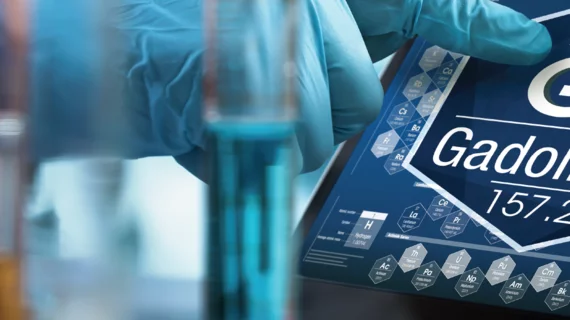Guerbet touts performance of new lower dose gadolinium contrast agent for MRI
Guerbet is touting the performance of its new lower dose gadolinium contrast agent for MRI and is hoping to begin pursuing regulatory approval of the product in the near future.
The Villepinte, France-based firm recently conducted Phase 3 clinical studies of Gadopiclenol, testing the drug on a range of indications. Those included MR imaging of the central nervous system, along with the head and neck, thorax, abdomen, pelvis and musculoskeletal system.
A total of 560 patients were included in the studies, conducted in more than 60 hospital imaging departments across 13 countries. They reported no major safety events, with the agent showing superior performance compared to an exam without contrast.
“We are very happy with the results of these studies, which demonstrate the diagnostic value and good tolerance of Gadopiclenol during an MRI examination in adults and children,” Guerbet CEO David Hale said Wednesday, March 24. “By using a lower dose of gadolinium in clinical practice, we hope this macrocyclic contrast agent will become a ‘best-in-class’ diagnostic solution for doctors and their patients.”
The company said its new product reduces the dosage of gadolinium by half when compared to other alternatives already on the market. Guerbet’s investigation also found that Gadobutrol similarly visualized and detected lesions in the central nervous system and other areas of the body.
Officials said they hope to begin seeking regulatory approval for the drug in the U.S. and European Union in early 2022.

